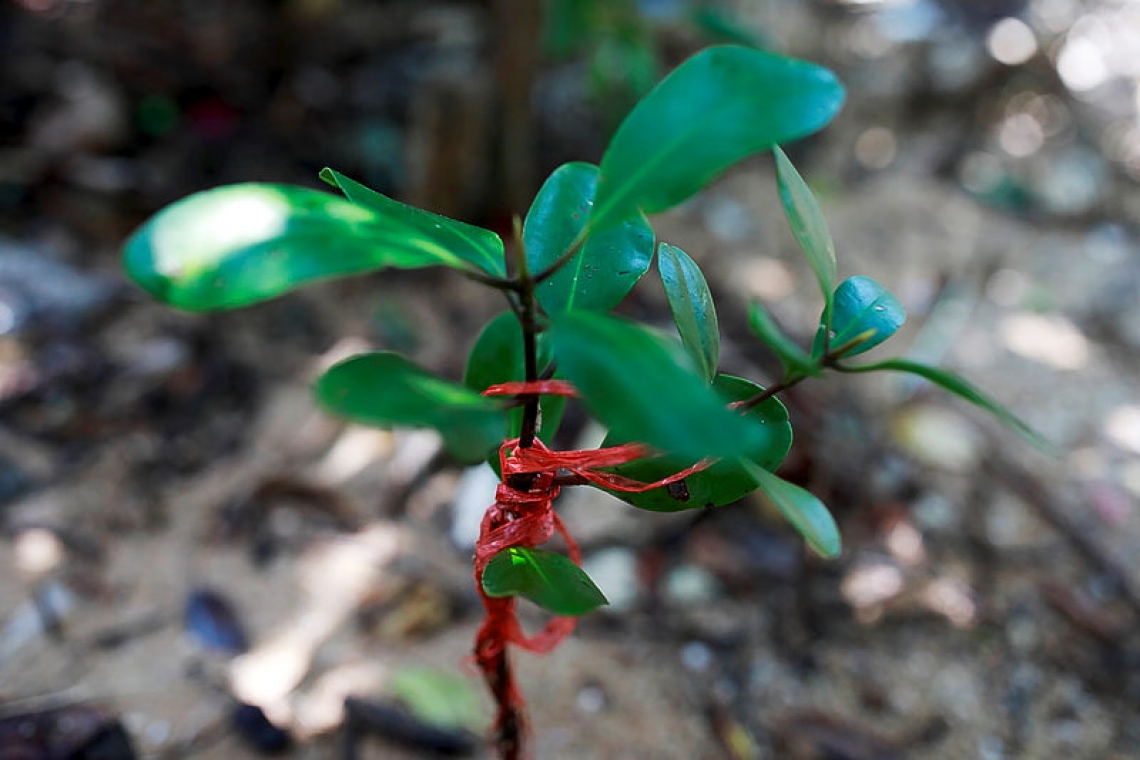KUALA LUMPUR, Malaysia--Existing stands of mangroves may not survive beyond 2050 if sea level rise continues at current rates, scientists warned on Friday, urging a rethink on the conservation of the trees, which serve as vital coastline defences.
A team of international researchers found that mangroves will stop growing if sea levels rise by an average of 6mm per year, compared with 4mm currently.
"Mangroves are the most efficient eco-system on the planet for storing carbon," said Benjamin Horton, chair of the Asian School of the Environment at Nanyang Technological University in Singapore. "We are very worried of a knock-on effect," he told the Thomson Reuters Foundation.
If mangroves are lost to sea level rise, "it would mean that there is even more carbon dioxide in the atmosphere, causing even higher temperatures and even higher rates of sea level rise."
Mangroves protect coastlines against increasing ferocious storms, rising seas and tsunamis. They also absorb planet-heating carbon from the atmosphere, and provide nurseries for young fish, which supports the livelihoods of coastal communities. But they are being destroyed at rates three to five times higher than the average for forests, and more than a quarter of the world's mangroves have already disappeared, according to the United Nations.
Looking at sediments from when the Earth lost much of its ice up to 10,000 years ago, researchers estimated the probability of mangroves surviving at rates of sea-level rise corresponding to two climate scenarios – low and high carbon emissions. When sea-level rise exceeded 6 millimetres per year - which is estimated to happen if emissions remain high up to 2050 - the researchers found that mangroves were likely to grow too slowly to keep sufficiently above the waves.
"We know that sea-level rise is inevitable due to climate change," said Neil Saintilan, a professor in the department of earth and environmental sciences at Australia's Macquarie University, which led the study. "But not much is known about how different rates of sea-level rise affect the growth of mangroves, which is an important ecosystem for the health of the Earth."
Under the 2015 Paris Agreement, most world governments have pledged to keep global warming to "well below" 2 degrees Celsius (3.6F) above pre-industrial times and to strive for a lower limit of 1.5C. If such limits are met, "that 6mm was not passed in the 21st century," said Horton. "If you have a low emission future that meets the Paris agreement, then you don't have this problem."







